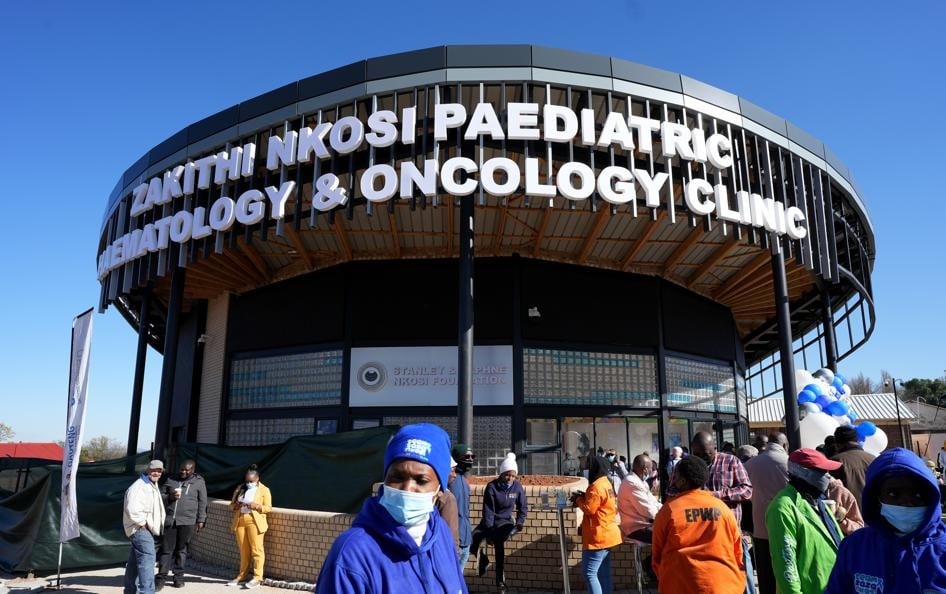
Xichavo Mhangani was 17 years old when he was diagnosed with sarcoma, a cancer of the bones and soft tissue. He had no knowledge of the disease at the time.
To make matters worse, Mhangani, who is now 19, had lost his mother the previous year and had to look after his two younger siblings as a result.
According to the Cancer Association of SA, an average of 800 to 1 000 children are newly diagnosed with cancer every year in the country. The association estimates that at least half of all the children with cancer in South Africa are never diagnosed, and that two-thirds of those diagnosed never reach a specialist treatment centre.
Mhangani was a speaker at the opening of the Zakithi Nkosi Paediatric Haematology and Oncology Clinic at Chris Hani Baragwanath Academic Hospital in Soweto this week. The state-of-the-art facility was donated by the Stanley and Daphne Nkosi Foundation to provide comprehensive haematology services along the entire spectrum of anaemias, bleeding disorders, thromboses and malignant haematology, including leukaemia, lymphoma and myeloma.
READ: State-of-the-art childhood cancer centre opens at Bara
The centre was named for Zakithi Nkosi, the last-born daughter of mining mogul Daphne Mashile-Nkosi, who died from haemophagocytic lymphohistiocytosis, a condition in which white blood cells build up in organs and destroy other blood cells. It is caused by an overactive, abnormal response of a person’s immune system.
Mhangani is a patient at Baragwanath hospital.
“I came to the hospital because I had swollen testicles and I did not know what was wrong with me. I had no one to share my problem with because at home I am the eldest and had to look after my two siblings.
“At the hospital, I was diagnosed with muscle cancer and I thought I was going to die and leave my siblings all by themselves,” he said.
However, he relaxed after the doctors explained to him that his cancer was treatable.
He said:
Pauline Wati (24) was 13 years old when she was diagnosed with acute leukaemia in 2012.
Wati recalled:
She beat the illness and last year she graduated with a bachelor of science in physiology and psychology from Sefako Makgatho Health Sciences University in Ga-Rankuwa, Gauteng.
“I was diagnosed with cancer at an early age. I know how it feels [to be sick], but it will get better,” she said to encourage the ill children who attended the opening of the clinic.
Professor Gita Naidu, the head of paediatrics at Bara, said, contrary to popular belief, common blood disorders such as leukaemia, as well as brain and kidney cancer, were treatable in 85% of child sufferers.
“With this knowledge, the World Health Organisation is aiming for at least a 60% survival rate by 2030.
“However, late diagnosis remains the main stumbling block in attaining these deliverables. The socioeconomic realities of low-income countries, distance from treatment centres, lack of money for medication and hospitalisation, and misdiagnosis form part of the challenges in both urban and rural areas,” Naidu said.
These hardships were compounded by the Covid-19 pandemic, which increased the incidence of late detection of cancers in children.
| ||||||||||||||||||||||||||||||
 |




 Publications
Publications
 Partners
Partners










